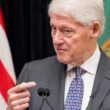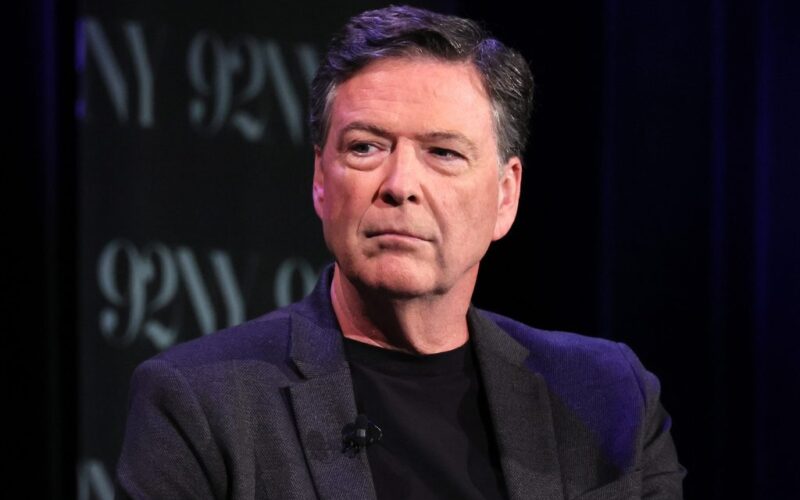Former FBI Director James Comey is being arraigned today on an indictment that is fatally flawed. The accusation does not recount a precise question and a direct willfully false answer required for a false statement charge under the Supreme Court’s leading 1973 precedent in U.S vs. Bronston. As such, an indictment based on a false statement for “speak[ing] the literal truth” is invalid.
The indictment charges that on Sept. 30, 2020, Comey “falsely stat[ed] to a U.S. Senator during a Senate Judiciary Committee hearing that he, JAMES B. COMEY JR., had not ‘authorized someone else at the FBI to be an anonymous source in news reports’ regarding an FBI investigation concerning PERSON 1.”
The “someone else” is only identified in the indictment as PERSON 3, who has been reported to be either former FBI Deputy Director Andrew McCabe or Daniel Richman, a Columbia law professor and a one-time employee of the FBI.
The validity of the indictment must be viewed in the context of Ted Cruz’s questioning of Comey that relates to the charge. That questioning began as a monologue “All right. Let’s shift to another topic. On May 3, 2017, in this committee, Chairman Grassley asked you point blank, ‘Have you ever been an anonymous source in news reports about matters relating to the Trump investigation or the Clinton investigation?’ You responded under oath, ‘Never.’ ”
Cruz continued, “Sen. Grassley then asked you, ‘Have you ever authorized someone else at the FBI to be an anonymous source in news reports about the Trump investigation or the Clinton administration?’ You responded again under oath, ‘No.’ ”
While the language, “authorized someone else at the FBI to be an anonymous source in news reports,” is the precise language the indictment charges as Comey’s falsehood, Cruz never asked Comey a single question based on this statement.
Cruz then pivoted to a different topic: “Now, as you know, Mr. McCabe, who works for you, has publicly and repeatedly stated that he leaked information to the Wall Street Journal and that you were directly aware of it and that you directly authorized it. Now, what Mr. McCabe is saying and what you testified to this committee cannot both be true. One or the other is false. Who’s telling the truth?”
Comey did not directly respond to Cruz’s question. He said, “I can only speak to my testimony. I stand by the testimony you summarized that I gave in May of 2017. Sen. Cruz.” Comey’s phrase, “I stand by the testimony,” did not directly answer Cruz’s question.
The indictment improperly relies on Comey’s unresponsive answer that “I stand by the testimony you summarized that I gave in May of 2017” to say that Comey adopted his 2017 testimony that he denied having ever “authorized someone else at the FBI to be an anonymous source in news reports about the Trump investigation or the Clinton administration.”
The identity of Person Number 3 is irrelevant. Cruz never elicited a direct answer from Comey for ever having “authorized someone else at the FBI to be an anonymous source in news reports.” That response can only be raised by implication from Cruz’s entire questioning.
As the Supreme Court in Bronston cautioned, “in casual conversation this interpretation might reasonably be drawn. But we are not dealing with casual conversation, and the statute does not make it a criminal act for a witness to willfully state any material matter that implies any material matter that he does not believe to be true.”
Thus, Comey’s non-responsive answer about standing by his 2017 testimony cannot, as a matter of law, be the basis for a false statement charge.
Next, Cruz followed up and asked Comey, “So your testimony is you’ve never authorized anyone to leak? And Mr. McCabe, if he says contrary, is not telling the truth, is that correct? Mr. Comey?”
Comey deflected and said, “Again, I’m not going to characterize Andy’s [McCabe] testimony, but mine is the same today. Sen. Cruz.” This non-responsive answer also cannot be the basis for a false statement charge. As to all of these instances where Cruz failed to follow up on questioning Comey, Bronston is clear that “[t]he burden is on the questioner to pin the witness down to the specific object of the questioner’s inquiry.”
What this indictment against Comey shows beyond any doubt is that it is legally invalid. It should be dismissed prior to trial. It also must be viewed in the context of Trump’s firing of his handpicked U.S. Attorney Erik Siebert, who reportedly refused to indict Comey because he had concluded there was no case.
Akerman was formerly an assistant special Watergate prosecutor and an assistant U.S. attorney for the Southern District of New York.








